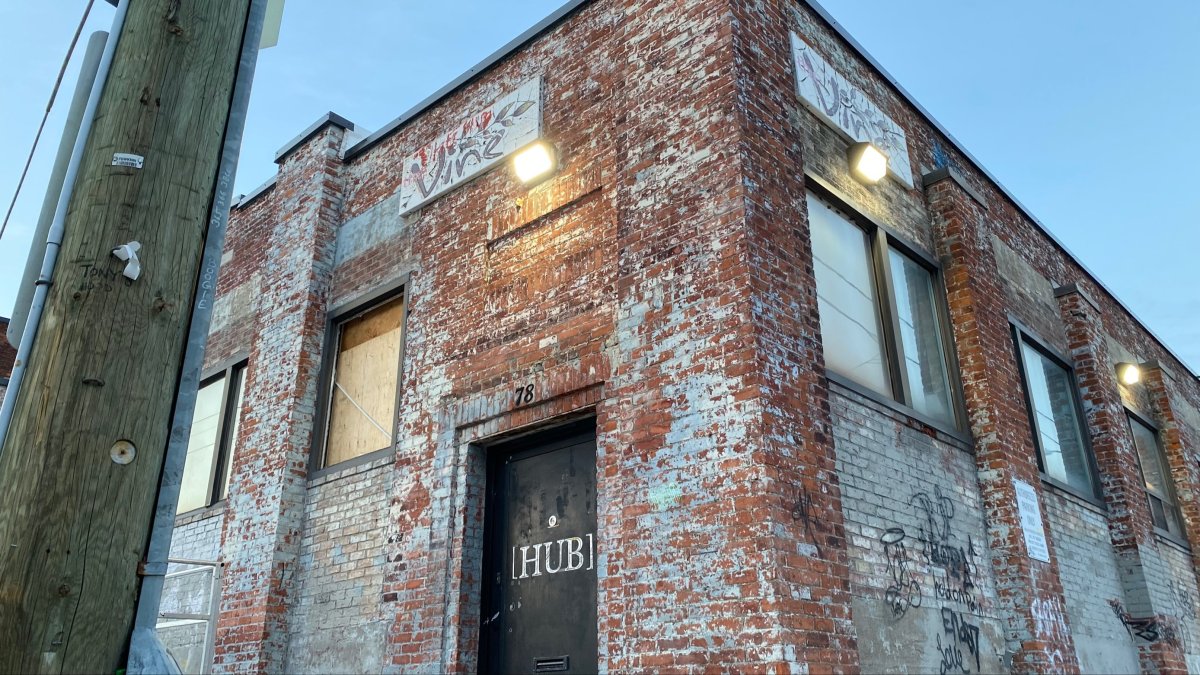Hamilton is set to spend just over a million dollars to aid an overburdened shelter system needed to support hundreds of vulnerable individuals who will face the cold weather this winter.

The city’s housing services division says in the absence of a sustained winter response plan, it will need $1.5 million to expand overnight drop-in warming services, particularly during cold snaps.
It includes a call-out to find 100 new overnight drop-in spaces as well as requisitioning an overnight HSR “warming bus” to aid those living outside.
A call for applications is also being made for “low-barrier” daytime drop-ins and a plan to use the central public library and recreation facilities when they are closed during holidays.
Last December’s cold snap that brought rain, snow and “flash freezing” but no cold weather warning leaving the city’s only overnight drop-in, The Hubon Vine Street, overwhelmed.
The occurrence forced the city to approve one-time funding (up to $125,000) to extend hours with its community drop-in partners to close out the winter.
Hub executive director Jennifer Bonner says the non-profit would be challenged again this coming winter without municipal support since the 25-space outlet receives no city money and only has the financial resources to operate on weekdays.
Over the past year, the social safety net has been serving some 65 to 100 people seven days a week, juggling the effects of a housing crisis, drug poisoning crisis and consistent closures of other community supports.
“People are hurting, and with the added pressures of newcomers arriving daily in our city,” Bonner told councilors.
“I fear that this winter will see many folks die on our streets.”
She advised councillors Thursday that accommodation for some 180 to 200 people per night may be needed in the next few months and that additionally that would need to be spread across the city, not just downtown.
“We need to communicate with each other so those warming centers are working as a team and training people and moving them where they need to be,” Bonner explained.
Housing director Michelle Baird says new spending is needed to accommodate an increase in need plus provide ongoing services “decoupled” from those spaces that only operate during cold weather alerts.
“So rather than it be a cold alert response, it truly does operate through the winter period,” Baird explained.
She characterized last year’s spending to free up space at The Hub and Carol Anne’s Place on MacNab as “bare bones” and suggests $1.7 million in annual funding from the housing budget be allocated to support 100 new year-round drop-in services.
The Winter Response Strategy presented to the Emergency and Community Services committee Thursday was approved in 6 to 0 vote. The plan is expected to go before council next week for ratification.
Councillors green light millions for emergency response and permanent housing
Hamilton councillors green-lit several million dollars during a general issues committee meeting Wednesday in an effort to keep people sheltered via the city’s emergency response and permanent housing initiative.
The ask came in the form of a joint presentation from the Healthy and Safe Communities department and the Housing Services division asking in the neighbourhood of $8 million for the rest of 2023 to keep services robust going into the first quarter of 2024.
Some $5.6 million is for “in-year” costs to beef up emergency overflow shelters, warming centres and supports at City Housing’s King William location to house individuals from encampments.
Another commitment of $2.3 million from a stabilization fund was put down in a conditional grant to help Indwell Community Homes begin construction of 20 to 25 units of family housing on Robert Street.
A July report from the Social Planning and Research Council of Hamilton (SPRC) urged the city to upgrade the emergency shelter system and address shortages that have contributed to recent high turn-aways, particularly with women.
The outline targeted the prioritizing of new shelter beds to meet a lack of accommodations for women, Indigenous groups as well as families.
Housing director Michelle Baird told councillors the family system is the largest shelter in terms of the number of beds, about 365.
Due to a “lack of options” Baird says hotel overflow is now costing just over $6 million annually, with some $2 million covered by provincial money.
She submitted it was by no means the most economical way to shelter people since much of the money from the Ford government is earmarked for the city’s homelessness prevention program.
Housing is also recommending improvements in services for the Indigenous Community, those needing affordable housing with supports and transitional housing as well as $1 million spend to recruit and retain staff.
Hamilton’s current annual budget to fight homelessness is $58.7 million with $27.9 million coming from the province and $9.9 million in federal contributions.
The city declared a crisis related to homelessness, mental health and opioid addiction in April and as of July estimates close 2,000 people have connected with its homeless services.
That’s up from the roughly 1,500 reported in January.
“Certainly ongoing affordability of housing … (and) ability for individuals to secure housing with supports for sure is a gap,” Baird said.
“We are also experiencing both crises with respect to mental health and addictions …and then we do have pressures as a result of refugees and asylum seekers.”
The committee voted in favour of the recommendations brought forth Wednesday which also includes a long-term advance of around $10 annually over the next three years to leverage provincial and federal investments to build permanent housing.
The measures will now seek ratification from council on Sept. 13.



Comments